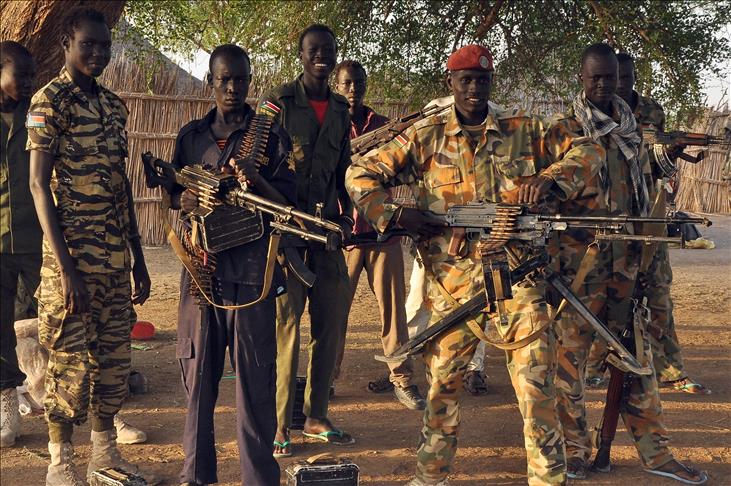
By Selen Tonkus
ANKARA
High-level proposals to use international monitors to oversee South Sudan's precious oilfields are doomed to failure until fighting between factions loyal to the country's president and his former deputy comes to an end.
Oil experts have told Anadolu Agency that the proposal, contained in this week's multi-national peace talks on the Sudanese conflict led by the Intergovernmental Authority on Development – IGAD – will not work as both warring sides want control of the lucrative oil fields.
South Sudan – Africa's newest country – has seen its estimated 3.5-billion-barrel reserve oil fields become a battleground between President Salva Kiir Mayardit and ex deputy president Riek Machar since December 2013.
IGAD regional mediators are considering international monitoring of oil revenues in order to free them being a factor in South Sudan's internal strife, but President Kiir's government says such outside intervention would violate its sovereignty.
This week's IGAD-led peace talks in the Ethiopian capital, Addis Ababa, are aimed at finding a political solution to the conflict.
However, for both sides the promise of the country’s oil wealth is a huge prize. According to the Oil & Gas Journal, Sudan and South Sudan together have 5 billion barrels of proved crude oil reserves as of January 1, 2013, located in the Muglad and Melut basins, which extend into both countries.
According to BP's 2013 Statistical Review, around 3.5 billion barrels are in South Sudan and 1.5 billion barrels are in Sudan. South Sudan gained independence from Sudan in July 2011 and most of the oil is now produced in the breakaway state, but the country is landlocked and remains dependent on Sudan as vital infrastructure, including pipelines and ports, are located in its northern neighbor.
David Shinn, a former U.S. ambassador to Burkina Faso and Ethiopia, says the fighting has resulted in damage to some of oil fields and reduction of perhaps one-third of South Sudan's oil production.
South Sudan’s oil output has decreased by about a third to 160,000 barrels a day since December, said Shinn; "Both men would like to control all of South Sudan and, hence, the entire oil sector."
Shinn adds that the instability in some oil-producing areas is diminishing production but ruled out any role for international observers – as in the IGAD proposals – until the fighting stops.
"Riek Machar probably wants to keep as many of the fields as possible from producing as this diminishes the amount of money that Salva Kiir has to support his troops who are combating Machar," he noted.
No role for international monitors
Dr Fritz Nganje, a Postdoctoral Research Fellow in African Diplomacy at the University of Johannesburg said control of the oil fields is "a strategic consideration for both the government and rebels…for bargaining purposes given the centrality of oil to the economy of South Sudan."
"It is therefore unlikely that any of the actors would subject oil fields in territory under its control to international monitors," he emphasized.
Professor Lere Amusan from the Department of Politics and International Relations at South Africa's North-West University was also dismissive of the monitoring proposal, saying: "Appointment of an international observer to ensure [the] free flow of oil to the international market will only be a palliative measure of a relapsing fever in the country."
“As much as the oil is the main source of the economy of South Sudan, and as much as the oil is within the control of the states controlled by the opposition groups, the solution to the problem can only be found in the re-writing of the state constitution,” he added.
Amusan says the constitution should reflect "true federalism" where resources will be controlled the province that will house it, of which a certain percentage of the revenue generated will be sent to the national government.
IGAD has set an August 10 deadline to agree on a transitional government and implement a ceasefire.
The last round of talks between President Salva Kiir and rebel leader Riek Machar stalled in June.
Anadolu Agency website contains only a portion of the news stories offered to subscribers in the AA News Broadcasting System (HAS), and in summarized form. Please contact us for subscription options.

